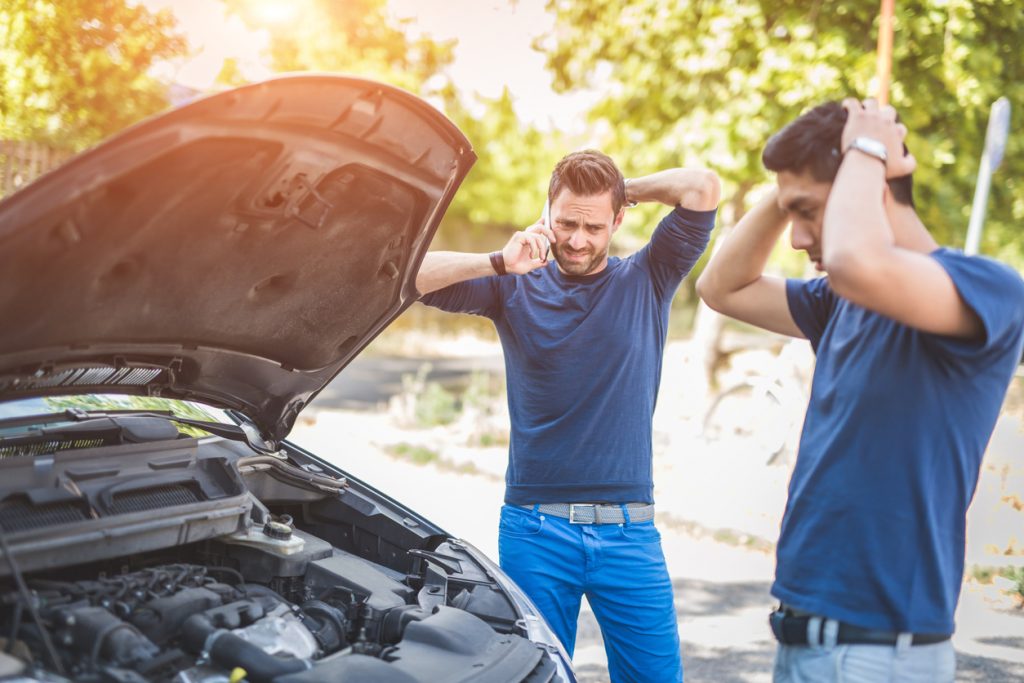What To Do If Your Car Won’t Start
Posted August 3, 2020

One of the most frustrating car problems is when you turn the key and nothing happens — but we’re here for you! Our auto experts can help diagnose the problem to get you back on the road as quickly as possible.
Here are the most common causes of starting problems:
Battery.
The most common cause of starting issues is the battery. Especially in extreme temperatures (both cold and hot), battery failure or a dead battery is the most likely culprit.
First check to see if your battery has died by turning on the car lights. If they are very dim, or don’t come on, your battery needs to be charged. Look at the battery under the hood and check for corrosion and loose connections. Tighten and clean the battery posts. You can measure the amps to see if the battery is weak with a battery tester, if you have one.
If your battery is dead, you’ll need to jump start your car. Keep your car running for at least 20 minutes to allow the battery to build its charge. If the jump start doesn’t work, you might have bigger problems – give us a call at 616.796.9929 and we can work together to find a solution.
Electrical Problems.
Check your fuses to make sure it isn’t a simple loose connection. There are many electrical connections in your engine – you should check the ones you can find to be sure they are tight. Problems with your engine’s computer or its electronics can also explain why your car won’t start. Bring it in to our shop for diagnostics if you confront this issue.
Ignition System.
Your car not starting may be as simple as a faulty ignition switch. In most vehicles, the warning lights will turn on when you turn the key to the “on” position (but not start). If the lights don’t appear, the ignition switch is likely bad. When you do try to start the car, the warning lights should turn off and your headlights should dim or turn off. If they do, then your ignition switch is working properly and the problem lies elsewhere.
While you’re testing the ignition system, you should also look at your ignition coil. Your coil wires may be shorting or broken, so look for cracks or splits on the coil. You can also test the ignition coil with a multimeter (if you have one). If your vehicle’s ignition system can’t spark, your engine won’t start.
Other Issues.
If it has been damp and rainy lately, or if you’ve been driving in wet conditions, moisture on your spark plugs or engine components could prevent your car from starting normally. Alternator problems mean that your car isn’t able to power your car’s accessories, but more importantly it can’t keep the battery fully charged or replenish the power it needs to start your vehicle. Loose starter bolts, bad injectors, computer issues, and fuel relay issues are just a few of the other potential problems that could explain why your car won’t start.
If your vehicle won’t start or if you’re experiencing any other car problems, get in touch with us ASAP so our ASE-certified technicians can help get you back safely on the road!
Categories: Car Repair
Tags:
Previous Post « Watch Out for Overheating Engines!
Next Post Oil Loss Prevention »
